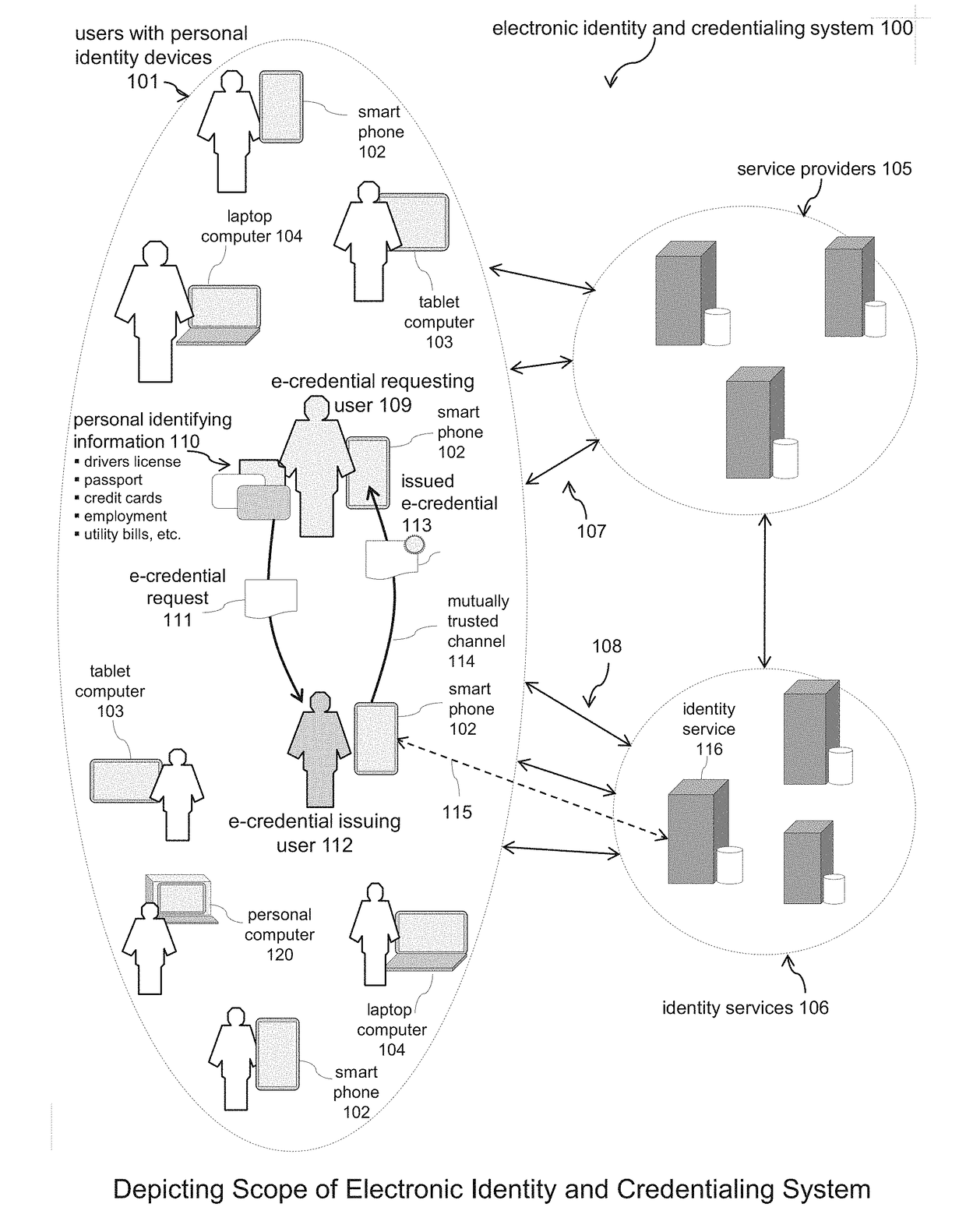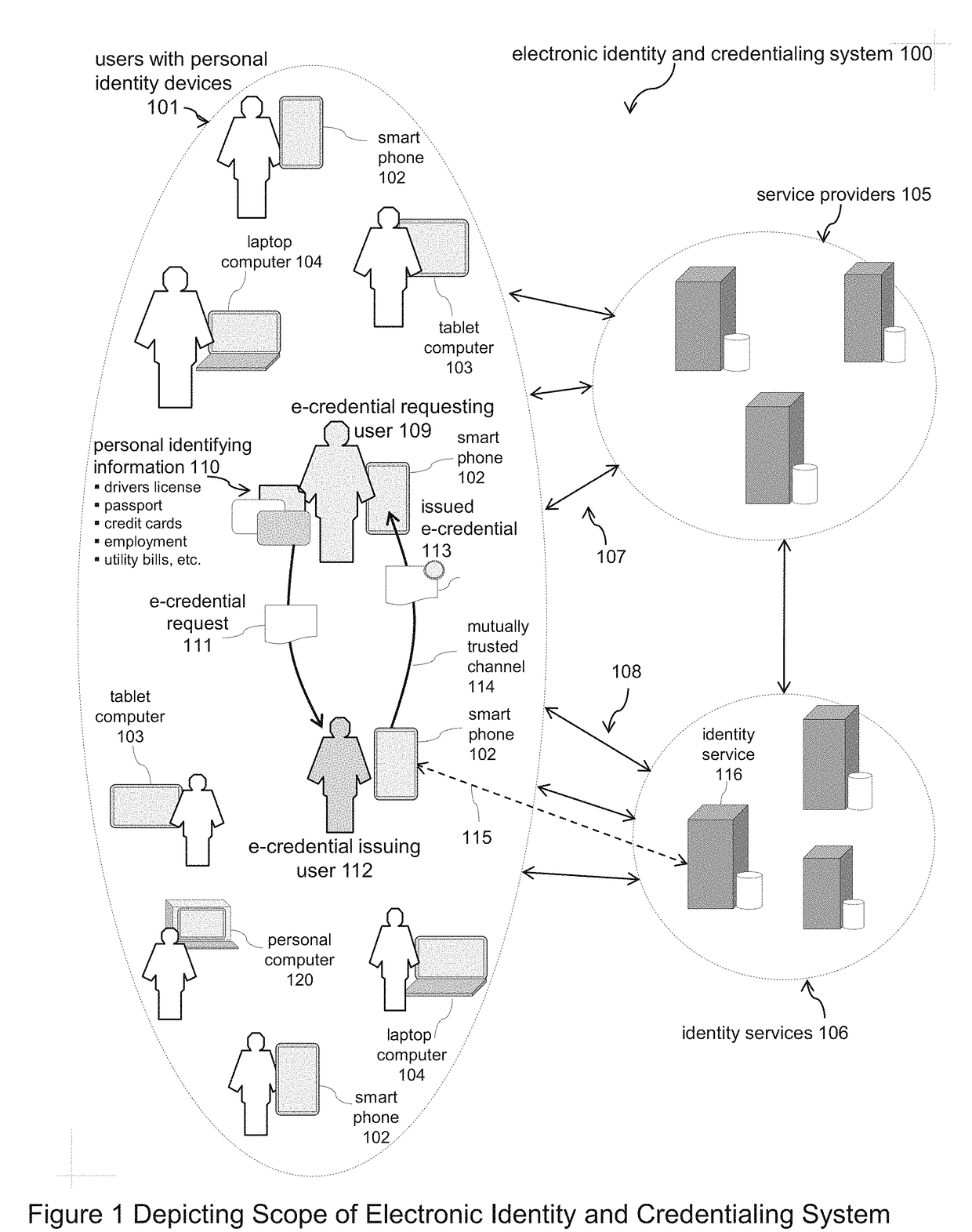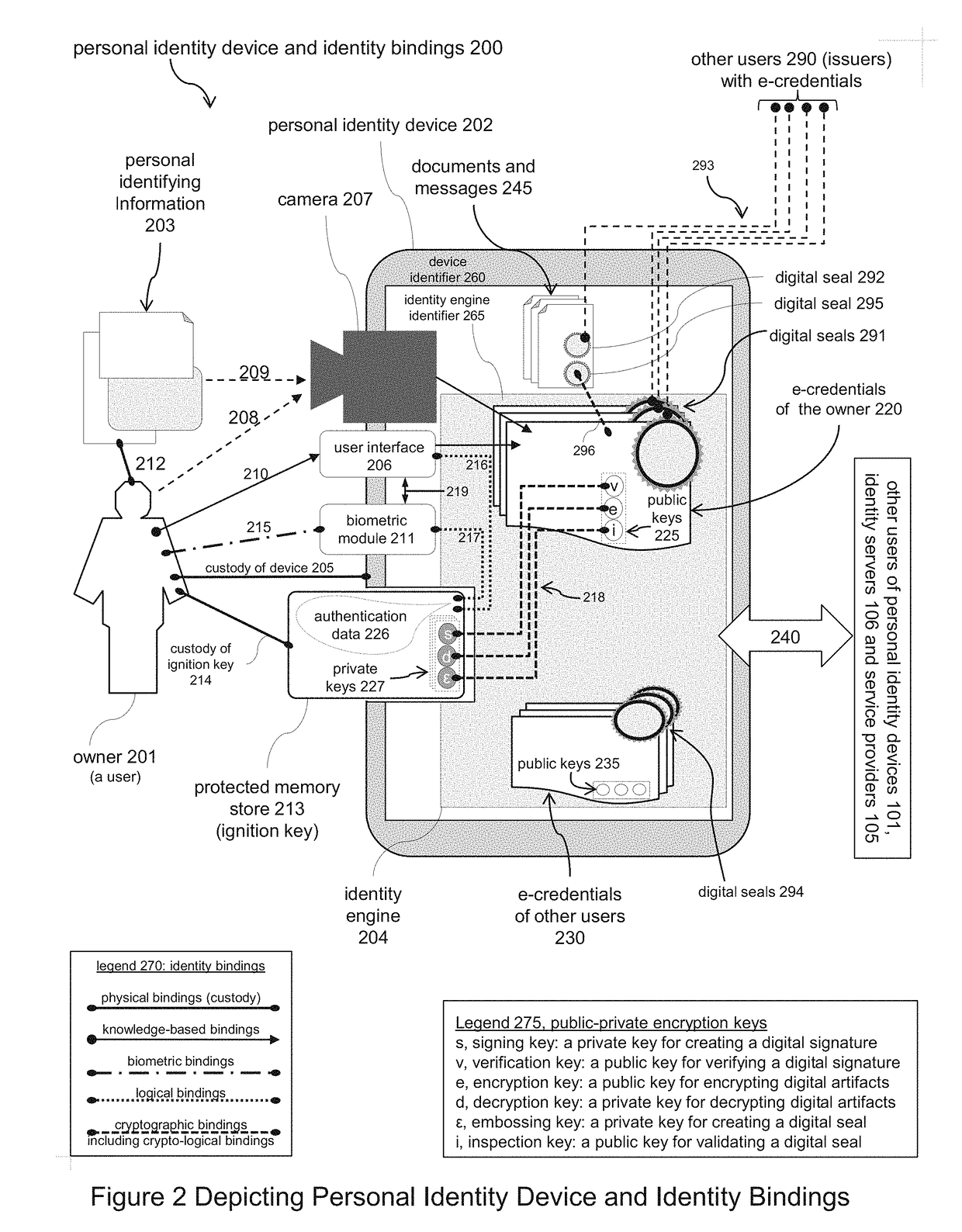Systems and Methods for Registering and Acquiring E-Credentials using Proof-of-Existence and Digital Seals
a technology of proof-of-existence and digital seals, applied in the field of identity provisioning and usage over information networks, can solve the problems of difficult to conduct most day-to-day transactions, impracticality and ill-advised capture, and the most labor-intensive aspect of traditional physical credentialing systems
- Summary
- Abstract
- Description
- Claims
- Application Information
AI Technical Summary
Benefits of technology
Problems solved by technology
Method used
Image
Examples
Embodiment Construction
[0443]Representative embodiments according to the inventive subject matter are shown in FIGS. 1 to 12, wherein similar features share common reference numerals. The specific embodiments are meant to be illustrative and not limit the scope of the invention and the various ways it may be embodied.
[0444]The inventive subject matter is an electronic credentialing system which includes personal identity devices of users [persons] capable of requesting and issuing electronic credentials, as well as exchanging electronic credentials over the web with identity services and service providers. A personal identity device is an adapted mobile computing device such as a smart phone, a tablet computer, a laptop computer, or personal computer with a pre-installed identity engine and a protected memory store. Users have physical credentials in their custody, and electronic credentials (e-credentials) maintained within the identity engine of their personal identity device(s). The protected memory st...
PUM
 Login to View More
Login to View More Abstract
Description
Claims
Application Information
 Login to View More
Login to View More - R&D
- Intellectual Property
- Life Sciences
- Materials
- Tech Scout
- Unparalleled Data Quality
- Higher Quality Content
- 60% Fewer Hallucinations
Browse by: Latest US Patents, China's latest patents, Technical Efficacy Thesaurus, Application Domain, Technology Topic, Popular Technical Reports.
© 2025 PatSnap. All rights reserved.Legal|Privacy policy|Modern Slavery Act Transparency Statement|Sitemap|About US| Contact US: help@patsnap.com



